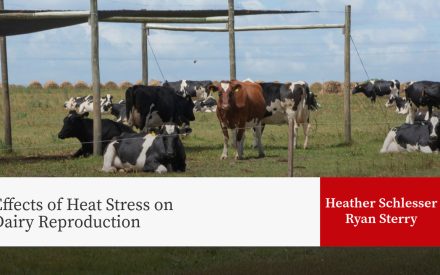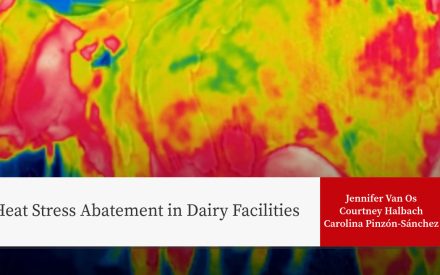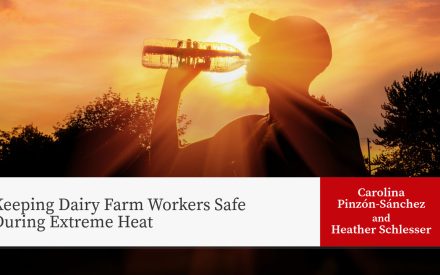In this episode of Badger Dairy Insight, we hear from Dr. Jimena Laporta, Assistant Professor – Lactation Physiology for the University of Wisconsin-Madison Department of Animal and Dairy Sciences.
Heat stress, a prevalent challenge in modern dairy farming, has been shown to have far-reaching consequences on young calves’ health, well-being, and productivity; even before they are born. This presentation will explore how heat stress affects the physiological, behavioral, and developmental aspects of calves during their critical early stages of life and highlight the long-lasting implications that persist into adulthood. Additionally, this presentation will discuss potential strategies to alleviate the detrimental impacts of heat stress on dairy calves, including housing management interventions.
Author

Dr. Jimena Laporta
Assistant Professor – Lactation Physiology – Dr. Laporta’s program integrates mammary gland physiology with advances in management and nutrition to overcome challenges dairy cattle face across their lifetime, including increased susceptibility to the environment, metabolic disorders, and immune suppression. Her research incorporates state-of-the-art molecular techniques to investigate how autocrine, systemic, and environmental factors affect the regulation of mammary gland development and function, as well as milk synthesis and composition. She also investigates the underlying molecular mechanisms by which prenatal and postnatal stressors contribute to the programming of offspring’s future potential. By targeting these early life developmental windows, Dr. Laporta aims to develop management practices and therapeutic interventions to improve future health and productivity outcomes. Dr. Laporta’s outreach goal is to generate knowledge that can be translated into practical improvements while training future scientists and educating the community on the importance of the efficient production of sustainable dairy products.


 Effects of Heat Stress on Dairy Reproduction
Effects of Heat Stress on Dairy Reproduction Heat Stress Abatement in Dairy Facilities
Heat Stress Abatement in Dairy Facilities Keeping Dairy Farm Workers Safe During Extreme Heat
Keeping Dairy Farm Workers Safe During Extreme Heat ▶️ Watch: Leveraging digital technologies to improve management decisions in dairy farms
▶️ Watch: Leveraging digital technologies to improve management decisions in dairy farms


